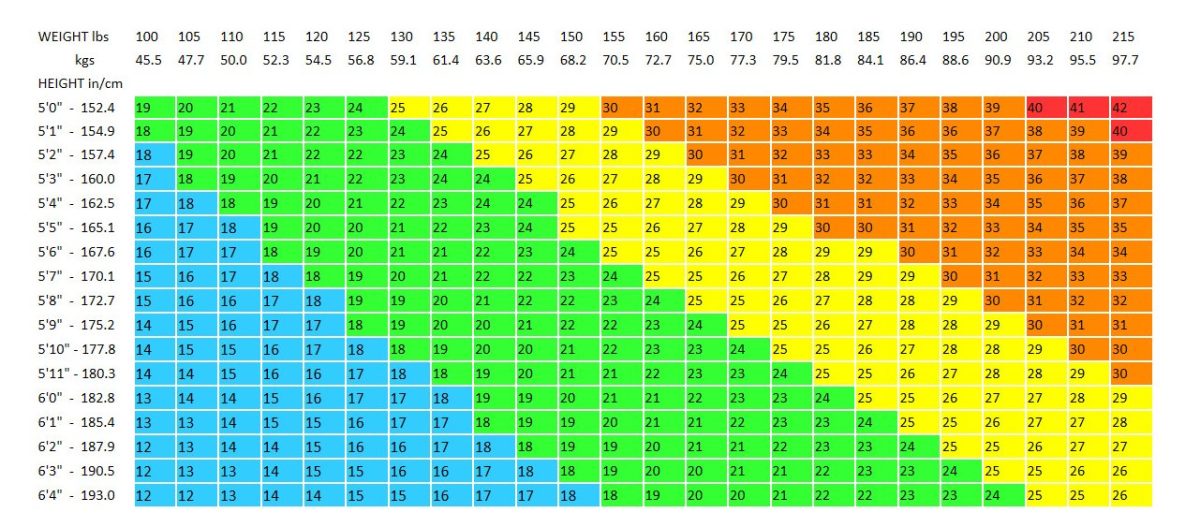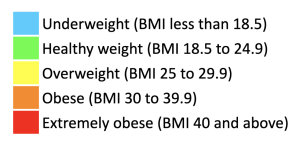Below are links to documents on sugars, reducing carbs and general guidelines for low carb healthy fat nutrition, our preferred approach to nutrition. Our philosophy is to provide principles and guidelines, not specific meal plans. This is a discovery process to find out what works for you so this is sustainable long term. These documents will be helpful to understand why the foods most people eat are unhealthy and contribute to chronic disease, metabolic syndrome, and inflammation.
If you want to use an app, we recommend either Cronometer or Myfitness Pal. Apps easily allow you to track food. They help to understand what is works for weight loss but also bringing awareness to what is counterproductive. Tracking food is about education. It’s important to understand some basic differences about what is in the food you eat. This program is not about tracking macros, counting calories, or obsession on points. But if you don’t know the difference between a carbohydrate, a fat, and a protein some education is helpful. Tracking long term isn’t necessary, but when starting it can be beneficial.
We advocate for a LCHF (low carb healthy fat) nutrition plan, see the documents discussed above for what this means. For reasons we will get into soon, this is an effective way to reverse metabolic syndrome and lose weight.

We all have a relationship with food. For those that stuggle with their weight it’s not a healthy one. Those that have struggled with countless diets, yo-yos, and difficult maintaining weight loss, we have to work on this relationship. Food is not the problem, but our relationship with it.
We want to create a healthy relationship with food. Begin by writing any emotions that come up when you eat, how food makes you feel, and emotions experienced when struggling. This starts a discovery process and creates awareness of compulsive and unhealthy habits. The first step is to be self aware of this relationship to create strategies to correct behavior. If there is no awareness, it is challenging to create strategies to deal with belief systems, programs, and habits.
Example: most patients that come to us are focusing on portion control or counting calories. The same broken approach of eating less and exercising more. Concepts based on restriction and deprivation which don’t work. This is crucial to understand, and you will soon.
If you aren’t sure what a healthy weight should be for you visit our BMI page here where we discuss BMI or body mass index and why this is important.
An In-Body is a body composition scan. This allows us to track body composition progress. With this scanner we can track not only weight loss, but what that weight consists of. Our goal is to minimize muscle lost during weight loss, and an In-body provides this info. We recommend a scan every six to eight weeks so we can track progress. This can be done at NoCo Fitness in Greeley. The cost is $10, it’s non invasive and takes less than five minutes. NoCo Fitness is located at: 3820 W 10th St Suite B-10, Greeley, CO 80634 Click Here for their website.
What to expect, what needs to be done, and how to maximize your results.
Put more Patient Resources HERE!
RECIPES
EXERCISE AND RESISTANCE TRAINING
This is highly variable but you should expect to lose anywhere from .5-1% of your bodyweight every week. This will depend on you though. We have had patients that do all the work, really dial in their nutrition, activity, exercise and do better than this. It is also not uncommon for patients to lose well over 10% of their body weight in the first 8-12 weeks.
Many people believe that they have to exercise in order to lose weight, but the truth is that exercise is not always necessary for weight loss. While physical activity can certainly be beneficial for overall health and well-being, the key to losing weight is really about balancing our hormones, improving insulin resistance and pulling energy from out fat stores and oxidizing it to be released and utilized by the body.
This means that you can lose weight simply by adjusting your nutrition. In fact, research has shown that changes in dietary habits are often more effective for weight loss than exercise alone. And we can never outwork terrible nutrition.
Of course, exercise can still be a valuable tool for weight loss, especially strength and resistance training as it can help increase muscle mass which will boost metabolism. This burns more energy even at rest. However, if you are unable to exercise due to physical limitations or time constraints, you can still achieve weight loss success through dietary changes alone.
Ultimately, the most important factor in weight loss is finding a sustainable approach that works for your individual needs and preferences. Whether you choose to incorporate exercise or focus solely on your diet, consistency and patience are key for long-term success. But we have taken all of the guess work out through knowing what works with thousands of successful patient of our own and our partners.
No but you should, and I’ll tell you why. While low-carb diets can be effective for weight loss and improving certain health markers, such as blood sugar control and triglyceride levels, it is not necessarily required for everyone to follow a low-carb diet. However, in our experience it is by far the most superior way to lose weight the fastest and completely reverse most of the metabolic syndromes we face. If you have metabolic syndrome, pre-diabetes, diabetes, or fatty liver disease any amount of carbohydrates are going to be detrimental to healing.
it is important to note that many individuals today are metabolically damaged, insulin resistant, and may have non-alcoholic fatty liver disease (NAFLD), often as a result of a high sugar, high-carbohydrate, processed food diet and sedentary lifestyle. In these cases, adopting a low-carb diet can be beneficial and effective.
Low-carb diets typically involve reducing or eliminating foods high in carbohydrates, such as sugar, bread, pasta, rice, and increasing consumption of healthy fats and protein. This approach will help improve insulin sensitivity and reduce inflammation in the body, leading to weight loss and improved health outcomes.
It is natural to wonder whether the weight loss achieved through taking semaglutide shots can be maintained after stopping the medication.
While it is possible to regain weight after stopping semaglutide shots, it is not necessarily inevitable. The key to maintaining weight loss after stopping the medication is to make lasting behavioral changes that support a healthy lifestyle. This means adopting healthy eating habits, staying physically active, and managing stress levels. If you reverse your metabolic syndrome and your insulin resistance, there is no reason that you can’t maintain your weight loss.
Research has shown that successful weight loss maintenance requires ongoing efforts and commitment to healthy behaviors. Therefore, if you rely solely on taking semaglutide injections without making permanent behavioral and lifestyle changes, it is a certainty that you will regain weight.
After you reach your goal weight, we will also be working closely with you to make sure that you are setup for success long term.
If you have been struggling to lose weight no matter what you have tried, it is likely that you have underlying metabolic issues, such as metabolic syndrome or insulin resistance. Only 7% of Americans today are metabolically healthy. These conditions make weight loss challenging and all but impossible, even when eating a healthy diet and exercising regularly.
Metabolic syndrome is a cluster of metabolic risk factors that increase the risk of developing chronic diseases such as diabetes, heart disease, and stroke. The condition is characterized by a combination of factors such as high blood pressure, high blood sugar, high triglycerides, low HDL cholesterol, and excess abdominal fat. Having metabolic syndrome can make it difficult to lose weight and can often leads to weight gain.
Insulin resistance and hyerinsulinemia is another metabolic issue that can make weight loss extremely challenging. Insulin is a hormone produced by the pancreas that regulates blood sugar levels. Insulin resistance occurs when the body’s cells become less responsive to insulin, leading to high blood sugar levels. Because blood sugar in excess is toxic it must be removed, and in people that are insulin resistant this often is removed and stored as fat. This can cause weight gain, especially around the abdomen, and make it difficult to lose weight.
Research has shown that weight loss is more than just about calories in versus calories out. Hormones play a significant role in regulating appetite, metabolism, and fat storage. In particular, the hormones insulin, cortisol, and leptin can dramatically impact weight loss success.
Insulin plays a critical role in regulating metabolism and fat storage. When insulin levels are high, the body is in fat storage mode, making it difficult to lose weight. Reducing insulin resistance through dietary and lifestyle changes can help improve weight loss success.
In conclusion, if you have been struggling to lose weight despite efforts to eat healthy and exercise regularly, it is important to consider underlying metabolic issues such as metabolic syndrome or insulin resistance. These conditions can make weight loss challenging and may require specific dietary and lifestyle changes to improve success. Additionally, understanding the role of hormones in weight loss can help shift the focus from simply counting calories and increasing physical activity to addressing hormonal imbalances that may be contributing to weight gain.
Set up an initial consultation where questions are answered and lab work is ordered.
Follow-up appointment to discuss in-depth lab results and YOUR personalized plan.
Depending on the therapy chosen, follow-up is initially in eight weeks then every six months. Some patients only require labs and follow-up yearly depending on how YOU feel!

